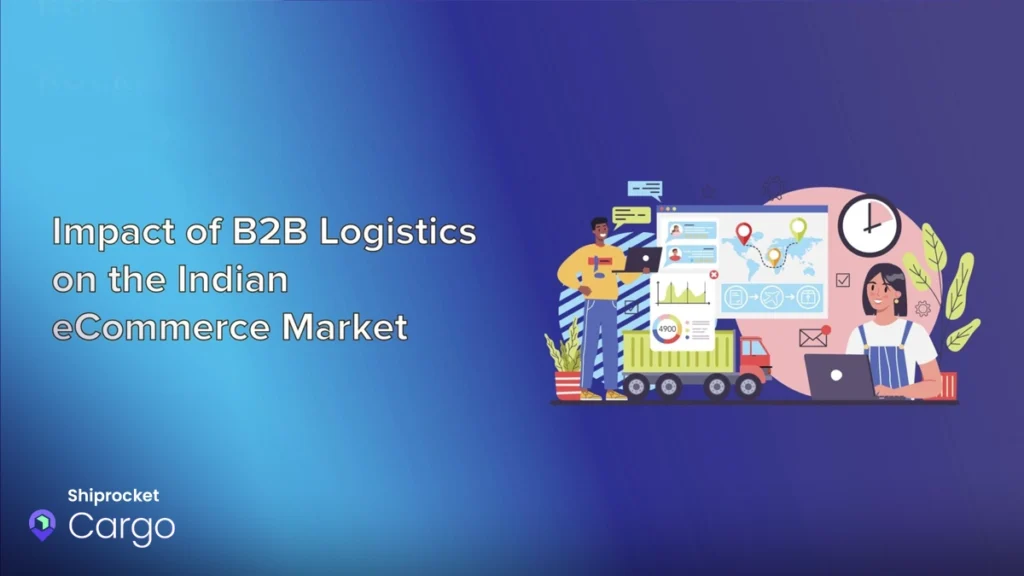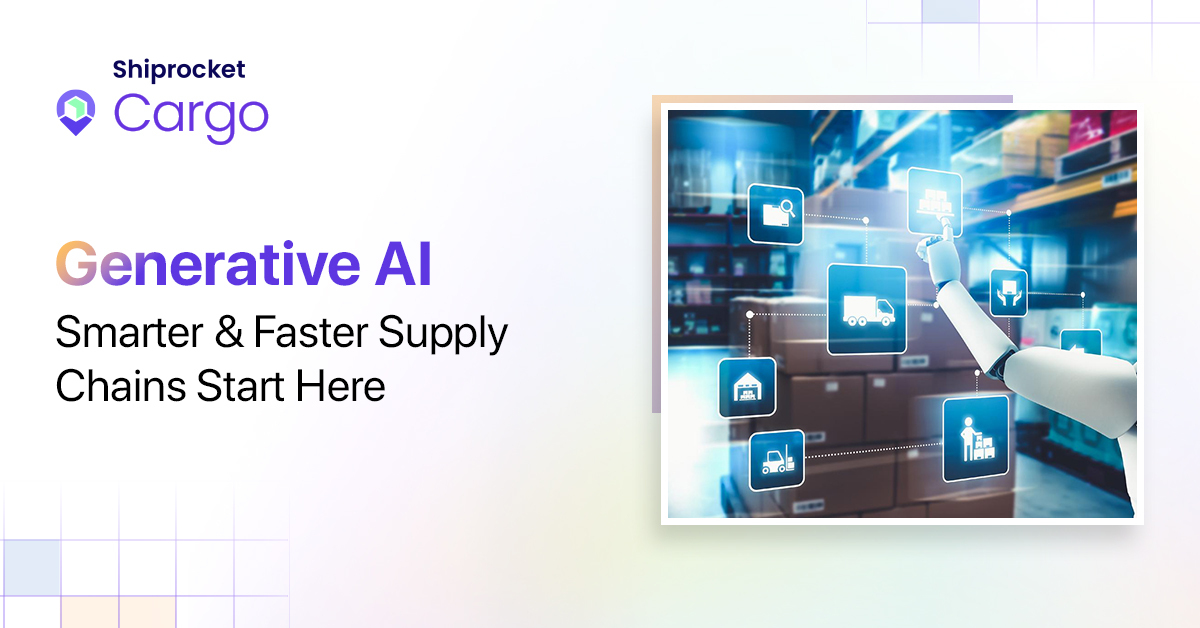What is the Impact of B2B Logistics on the Indian eCommerce Market?

With each passing year, the eCommerce market in India is due to growing internet penetration and the growing culture of online shopping in the country. However, one more factor that is propelling the growth of the Indian eCommerce market is seamless B2B logistics. Because of business-to-business logistics services, manufacturers can develop products that can be shipped to retailers for further selling. According to a report by Mckinsey Global Institute, the Indian B2B logistics market stood strong at $200 billion in 2020 and is expected to reach the value of $320 billion by the end of 2025.
As the competition between eCommerce companies is constantly growing, the companies are in constant pursuit to gain an edge, whether it means eliminating unwanted agents in the supply chain, reworking parts of the business procedures, or even developing new products or services. B2B logistics is where modern businesses may explore new tactics to optimize or redevelop their processes.
To know more about B2B logistics, sign up.
What is the Present Landscape of B2B Logistics in the Indian eCommerce Market?
Currently, the B2B logistics handles inbound and outbound processes of the Indian eCommerce market. To avoid the risk of damages and enhance sales, eCommerce companies are partnering with b2b logistics companies to ensure they can procure top-quality raw materials and finally deliver the final product to the retailer on time and with accuracy.
Additionally, B2B logistics companies are implementing the Innovations in Logistics, such as AI and automation, that allows B2B logistics companies to stay ahead of the competition when transporting goods for eCommerce companies in India.
Related article: Effective B2B Logistic Strategies for Competitive Growth
What Impressions Does B2B Logistics Have on the Indian eCommerce Market?
Let’s look at the impact that growing B2B logistics has on the Indian eCommerce market:
Accelerating Amazon Effect
Amazon has become one of India’s most significant drivers of e-commerce growth today. When people make an order on Amazon, they don’t usually think or care about the behind-the-scenes process. This is because Amazon has made e-commerce shopping so comfortable for their users that it’s almost addictive. With attractive plans such as Amazon Prime and same-day delivery, customers are getting more expectant of smooth and hassle-free deliveries. Due to hassle-free deliveries from B2B logistics service providers, the company has kept its warehouses adequately stocked. Owing to the extensive network of vehicles, workforce, and delivery partners, B2B logistics are driving the Amazon effect in the Indian eCommerce market.
Propelled Pandemi Effect
The pandemic had been the most difficult two years for the Indian business sector and caused a migration of sorts from traditional retail shopping to widespread e-commerce shopping. Even in cases where physical stores were going out of business, the e-commerce industry showed no signs of slowing down. Instead, the e-commerce space in India grew about 5% CAGR, according to NASSCOM (National Association of Software and Service Companies), despite logistical challenges imposed by COVID-19, with expected sales of US$ 56.6 billion in 2021.
During the pandemic, B2B logistics played a crucial role in keeping the Indian economy running and ensuring the manufacturers could deliver essential products such as medicines and food products. As a result, the B2B logistics industry has gained substantial trust among retailers and manufacturers, propelling the pandemic effect.
Improved NDR Management and RTO Reduction
An NDR is usually filed to investigate the cause of the failed delivery and make a few more attempts. Quick and efficient NDR management is crucial to minimize losses. Whereas, if a product fails to be delivered even after multiple delivery attempts, an RTO (Return to Origin) is triggered. An RTO means the product is supposed to be shipped back to its point of origin. With seamless B2B logistics, businesses were able to reduce both the factors that are significant cost addition in an eCommerce company’s operations.
Conclusion
In 2022 the Indian eCommerce market witnessed substantial growth. However, one of the critical factors that have helped the sector is B2B logistics. The industry has kept the manufacturers, retailers, and clients in perfect sync to ensure each gets the desired product.
Connect with us to know how a business can leverage the benefits of B2B logistics.



